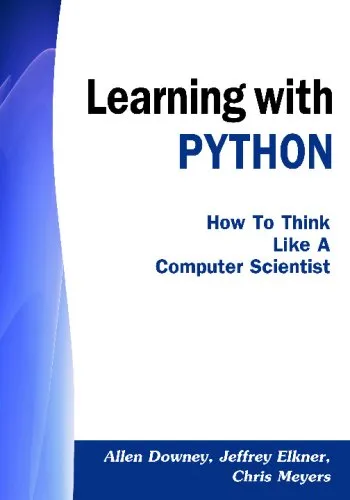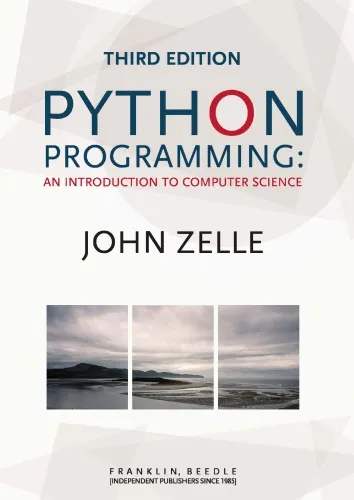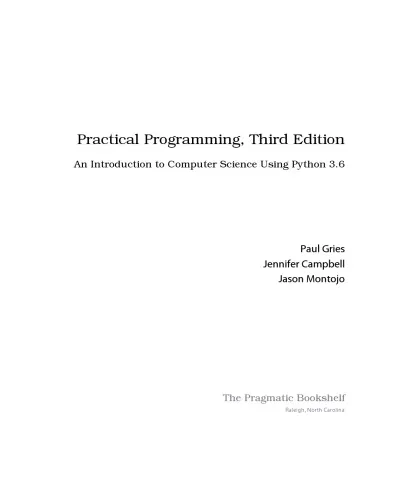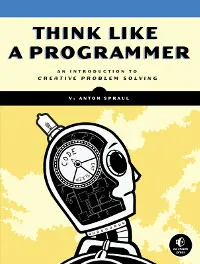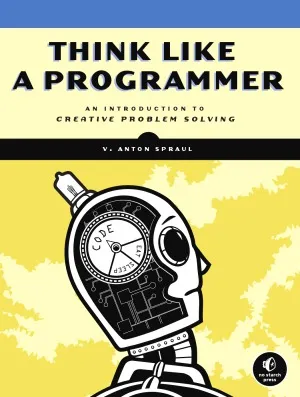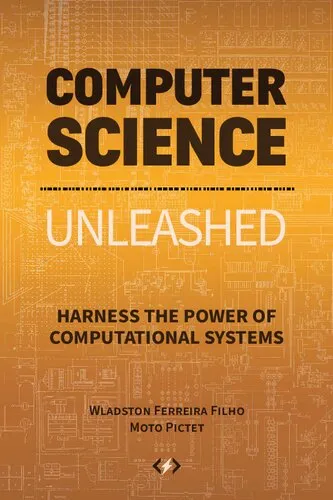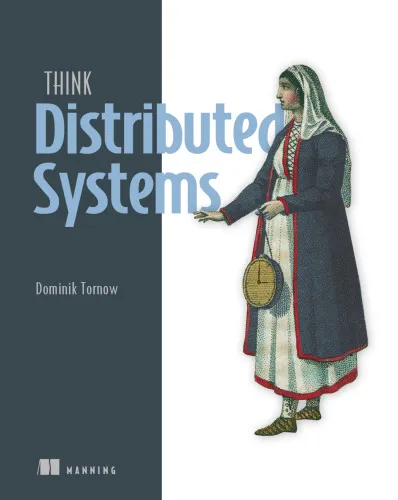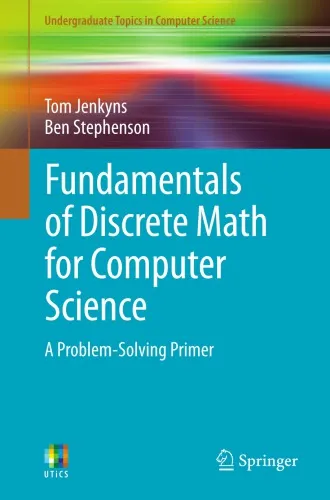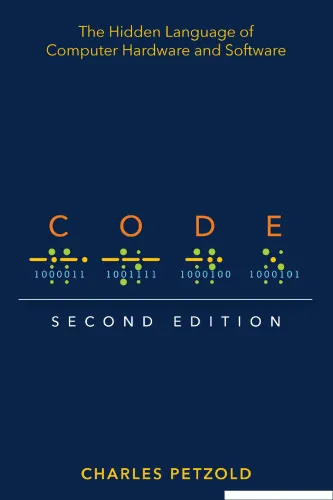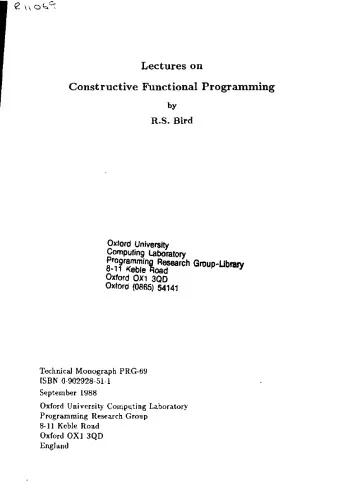The Journal of Logic Programming
4.0
Reviews from our users

You Can Ask your questions from this book's AI after Login
Each download or ask from book AI costs 2 points. To earn more free points, please visit the Points Guide Page and complete some valuable actions.Related Refrences:
Analytical Summary
The Journal of Logic Programmingpp.325—333 offers a concentrated exploration of a specific, significant segment within the broader field of logic programming. Written by W.F. Clocksin, this section engages readers with a precise, technical examination of methods, paradigms, and discussions that shape the understanding of declarative problem solving and symbolic computation.
Logic programming stands apart from imperative paradigms by describing relationships and conditions rather than sequences of procedural commands. This feature allows programmers and researchers to focus on what must be achieved instead of detailing step-by-step how to achieve it. In The Journal of Logic Programmingpp.325—333, the narrative zeroes in on the implications of this approach for both academic theory and practical system design.
Information about the exact year of publication and any awards is unavailable, due to the absence of reliable public sources confirming these details. Nevertheless, the scholarly tone and depth of analysis make it a valuable contribution to literature on logic programming languages and computation theory.
Key Takeaways
Readers of The Journal of Logic Programmingpp.325—333 will emerge with an enriched comprehension of both the foundational principles and cutting-edge developments in declarative programming.
One key takeaway is an understanding of how logic-based representations can dramatically improve clarity, maintainability, and adaptability in computer programs. Another is the realization that these methods have direct implications for artificial intelligence, data reasoning, and automated theorem proving.
The book section also emphasizes the importance of precise syntax and semantics, pointing out potential pitfalls when translating theoretical models into working implementations.
Memorable Quotes
Logic programming is not about instructions; it is about truths to be discovered.Unknown
In declarative paradigms, precision in thought precedes precision in code.Unknown
Abstraction is the bridge between logical theory and practical software systems.Unknown
Why This Book Matters
The Journal of Logic Programmingpp.325—333 matters because it tackles the interface between theoretical computation and its pragmatic application.
For academics, it offers structured insights grounded in formal logic; for professionals, it provides conceptual tools that can be mapped cleanly to problem domains requiring complex reasoning. The combination of secondary themes—logic programming languages and declarative problem solving—underscores its dual relevance to both research and practice.
Furthermore, the content promotes interdisciplinary engagement, inviting viewpoints from mathematics, philosophy, artificial intelligence, and systems design. This bridging of disciplines strengthens its role as a reference point in computational logic conversations.
Inspiring Conclusion
The Journal of Logic Programmingpp.325—333 provides a rare blend of precision and conceptual breadth, making it indispensable for anyone serious about logic-driven system design.
Whether you are exploring academic theory or seeking practical methods for real-world problem solving, this section offers enduring value. By engaging deeply with logic programming languages and declarative problem solving, readers can expand their analytical toolkit while strengthening their grasp of computational reasoning.
The next step is clear: delve into The Journal of Logic Programmingpp.325—333, share your insights within scholarly or professional circles, and join the ongoing discussion about shaping the future of logical computation.
Free Direct Download
You Can Download this book after Login
Accessing books through legal platforms and public libraries not only supports the rights of authors and publishers but also contributes to the sustainability of reading culture. Before downloading, please take a moment to consider these options.
Find this book on other platforms:
WorldCat helps you find books in libraries worldwide.
See ratings, reviews, and discussions on Goodreads.
Find and buy rare or used books on AbeBooks.
1005
بازدید4.0
امتیاز0
نظر98%
رضایتReviews:
4.0
Based on 0 users review
Questions & Answers
Ask questions about this book or help others by answering
No questions yet. Be the first to ask!

